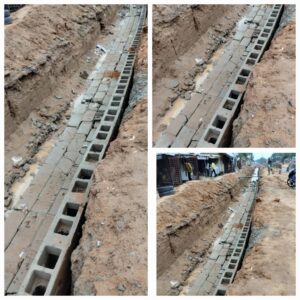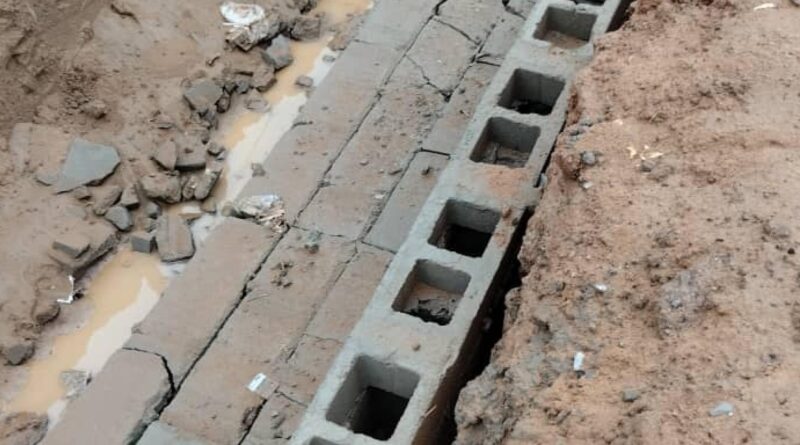Kebbi State ₦7.2B Drain Fails Months After Launch
A ₦7.23 billion drainage project in Kebbi State has reportedly collapsed just months after its completion, sparking public outrage and renewed concerns over corruption and poor construction standards in Nigeria’s infrastructure sector.
The project, awarded to Amirco Engineering Company, was designed to tackle seasonal flooding and improve water flow across affected communities. However, recent heavy rainfall has exposed significant structural failures. Several sections have already caved in, with visible cracks and broken culverts now marking the multi-billion naira development.

A civil society organization, MonITNG, raised the alarm in a statement released on Thursday. The group, known for tracking public infrastructure projects, revealed that hollow blocks were used in place of reinforced concrete in critical parts of the drainage system a major deviation from standard engineering practices.
“Hollow blocks were used where reinforced concrete should have been,” MonITNG stated. “This shortcut undermines the integrity of the entire structure and puts lives at risk.”
Read Also: NDLEA Arrests Two Cocaine Pushers Posing As Hajj Pilgrims
Construction experts say hollow blocks are ill-suited for structures designed to bear the intense pressure of floodwaters. As a result, the project’s failure highlights what many are calling a “classic case of substandard execution” in public works.
This revelation is particularly alarming given the project’s budget. With ₦7.23 billion allocated, many expected a world-class infrastructure capable of serving the state for decades.
Instead, the early collapse has left residents vulnerable and taxpayers questioning how such a large sum could deliver so little lasting value.
MonITNG is now urging Nigeria’s anti-corruption agencies the Economic and Financial Crimes Commission (EFCC) and the Independent Corrupt Practices and Other Related Offences Commission (ICPC) to launch a full investigation into the contract and execution of the project.
“This is not just about a failed drainage system,” the group said. “It’s about the accountability of public funds and the safety of the people.”
As calls for accountability grow louder, attention now turns to how the state government and relevant agencies will respond. For many, the incident is a harsh reminder of the urgent need to uphold transparency and quality in Nigeria’s public infrastructure projects.
Content Credit | Dada Blessing
Image Credit | parallelfactsnews.com




